These are available for single breeds, Geese, Heavy Ducks, Light Ducks, Bantam and Call Ducks.
Some contend that judging is an art rather than a science. Many scoring systems, the majority very elaborate, have been devised to standardise judges’ responses but, in the end, their evaluation on these individual points is still subjective. Their views are coloured by their own interpretation of the breed Standard and their experience. Experience, together with a good eye for stock and integrity are the requirements of a judge. Experience can be gained over the years by breeding and by discussing the Standard with other fanciers, for example.
So how does a Show Society select a judge? How do you start judging? In Great Britain, the Poultry Club produces a list of members who are qualified judges in the Yearbook - the Judges Panels. Local show committees can select whom they would like to judge their shows but, if they wish the show to be recognised by the Poultry Club and so offer Club Specials, a majority of the judges must be from the official list. Not only does this help to ensure high standards of competency, it also provides an assurance that the stock on display will be judged expertly, with the utmost attention given to careful handling of the birds on display.
The list is divided into four categories - Panel A, Panel B, Panel C, and Panel D. Judges work their way up from Panel D to Panel A over a number of years. From a first ‘unofficial’ judging appointment to Panel A could be achieved in nine years but, in practice, it is usually ten to fifteen years before the top panel is reached. Judges usually start their judging careers by judging the breeds they keep at a local show. In Britain, Breed Clubs exist to promote their breed and they stage classes at several Area shows as well as staging a main Club Show, usually held at the Poultry Club’s National Show each year. Once a judge has been elected by a Breed Club to officiate at their main Club Show, they can be listed on Panel D with the name of the breed or breeds they have qualified to judge, whether by experience or by taking a single breed test.
To gain promotion to Panel C a section examination has to be taken. This is set and organised by the Judging Tests subgroup of the Poultry & Eggs committee of the Poultry Club Board of Trustees. The examination tests both theory and practical knowledge and can be taken at one of the following show venues: The National Championship Show, The Scottish National, or Stafford Federation, with limited tests being offered at the Ulster Federation Show. The exams test one group of poultry only. Four such exams need to be passed to gain automatic entry to Panel B from Panel C, and only one test may be taken each year. All exams passed, together with considerable experience of judging at major shows, and approval from the PCGB Board of Trustees, qualify for Panel A.
Panel A: Judges must hold all qualifications and have gained experience judging major shows as approved by the Poultry Club of Great Britain.
Panel B: Judges must hold at least four section qualifications.
Panel C: Specialist section judges as approved by the Poultry Club Council. Judges in Panel C holding at least four certificates may be automatically upgraded to Panel B on request.
Panel D: Single breed judges who have taken a single breed test, or members who have judged, or have been selected, and agreed to judge a Breed Club Show are eligible for inclusion on Panel D for that breed. The relevant breeds are printed in italics.
A. Hard Feather (excluding Asian Hardfeather)
B. Soft Feather Heavy
C. Soft Feather Light
D. True Bantam
E. Waterfowl
F. Rare Breeds
G. Eggs
H. Turkeys
I. Asian Hard Feather
- N.B. Waterfowl members who have passed one of the group judging tests set by the BWA (Geese, Heavy Ducks, Light Ducks, Bantam Ducks, Call Ducks, Indian Runners) qualify for Panel D. When all these are passed they are upgraded to Panel C.
The written part of the examination lasts for 30 minutes and consists of questions based upon the British Poultry Standards book and the Poultry Club of Great Britain Unified Show Rules. Some questions just require factual recall, others demand judgements to be made on given facts. All are multiple choice.
The practical assessment is carried out by one of the senior judges appointed by The Poultry Club of Great Britain. They have approximately one hour to observe the trainee judge who should judge at least three classes of birds as well as discuss the merits of other birds on show. At the end of this, the examiner rings the appropriate marks on the judging test sheet. They will be assessing under four headings: competence, speed, handling, and theoretical knowledge.
Both parts of the exam are marked separately and at least 70%, in each section, is required to pass. This is confirmed at a Poultry Club Board of Trustees meeting and a laminated judge's card is issued. To gain entry to Panel A, all section certificates must be held and experience gained by judging at major Poultry Club shows. A letter of application detailing such experience has to be presented to the Poultry Club of Great Britain Board of Trustees, who decide by majority vote whether Panel A status should be granted.
Members wishing to apply to take a judging test should simply contact the Poultry Club of Great Britain Secretary. Complete the form and return it, together with the £25.00 administration fee. There are two important things to remember: (1) only one test may be taken each year; (2) the closing date for applications is listed on the application form below - please submit your applications in good time. Perhaps the golden rule in applying for a test is to time it right. Don’t apply until you feel confident, but don’t leave it so long that you are so well-known and so experienced that you will embarrass the examiners!
Panel A: Judges must hold all section qualifications and have gained experience judging major shows as approved by the Poultry Club of Great Britain.
Panel B: Judges must hold at least four group qualifications.
Panel C: Specialist section judges as approved by the Poultry Club Council. Judges in Panel C holding at least four certificates may be automatically upgraded to Panel B on request.
Panel D: Single breed judges who have taken a single breed test or members who have judged, or have been selected, and agreed to judge a Breed Club Show are eligible for inclusion on Panel D for that breed. The relevant breeds are printed in italics.
Breed Clubs and Societies should make an effort to train and encourage younger fanciers to become judges. To apply to get on the Judges Panel, all that is necessary is to contact the Poultry Club Secretary who will give details.
The first requirement for members to become judges is to obtain a copy of the British Poultry Standards book. Aspiring judges should study and become conversant with as many different breed Standards as possible, although it is not essential to be word perfect in quoting them. Much more important is to understand fully the meaning of the words, than just the words themselves. Younger fanciers will undoubtedly find this part easier than will the more mature, as the older one grows the more difficult it can become to assimilate large masses of fact. This does not mean the older person need despair of ever becoming a judge, as practical experience can be of inestimable value when assessing the merits of exhibits - the good judge carries the perfect bird in his or her mind’s eye.
A first class way to gain invaluable experience is to act as a steward for judges as often as possible. Not every judge likes to give a running commentary on their task as they carry it out, but the majority are willing to help and will quite often treat their steward as a junior partner. The thing to do is wait for the judge to set the pace, as it is well to remember that they are engaged in an exacting task.
Another way of learning about the various breeds is the obvious one of keeping them. The experience gained by such a method greatly exceeds any other if only because one becomes accepted into the ‘magic circle’ more easily when there is a common bond of interest.
Returning to the concept of the ‘minds eye’, there is no better way of developing this faculty than by studying the winning birds at shows up and down the country. No matter how keen you are on your own breed, widen your interest and experience by chatting to fanciers and judges of others. Find out why the one with the red card won it and the second did not, and for what reason the apparently good one never got in the first three.
One final bit of advice; when you are at last asked to judge do not be too modest and turn the chance down. The fact that you have been asked is an indication that someone thinks you are capable of doing the job. Grab the chance and have a go. Take your time, work methodically, and you will succeed.



